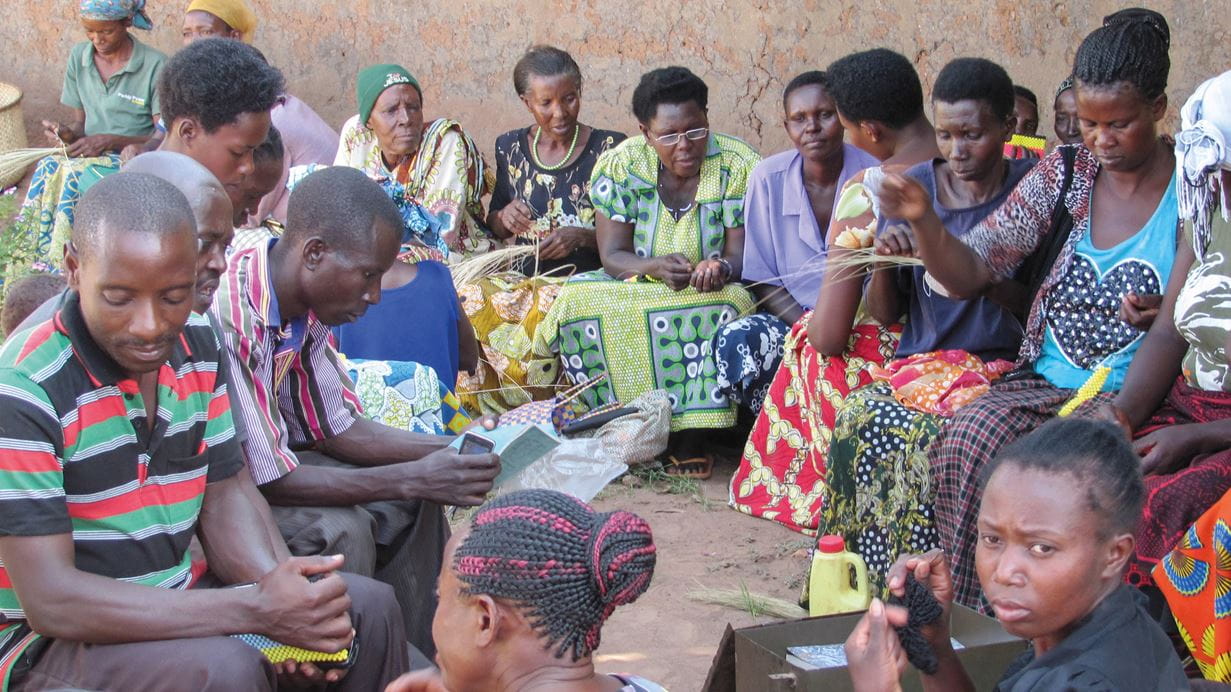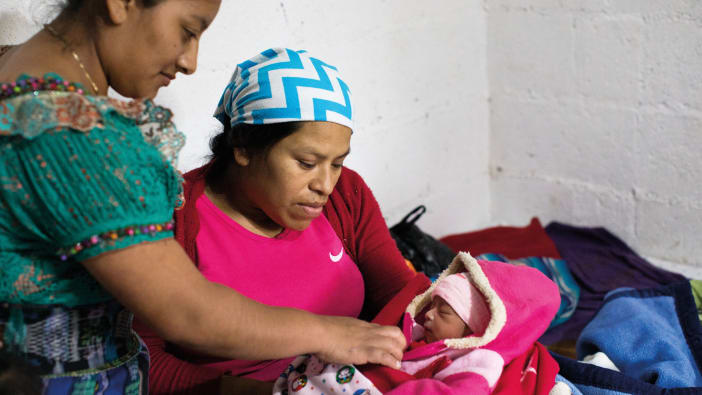In many ways, mental health is just like physical health. We are all affected by it and we need to take care of it. Physical and mental health are intimately linked, and both contribute to our overall well‑being.
Good mental health is when we feel good about ourselves, can cope with the stresses of life and are generally able to think, feel and react in ways that allow us to carry out our normal day-to-day activities. When we are mentally healthy we can maintain good relationships with those around us and contribute effectively to society.
While all of us might experience mental distress from time to time (eg when we lose a loved one or lose a job), this is not considered to be a mental illness unless we stop being able to function well at home, work or socially.
Mental illness
About a quarter of us will experience a mental illness at some point in our lives. These include common problems like depression and anxiety, as well as less common conditions such as schizophrenia and bipolar disorder.
People going through a period of poor mental health may find that the ways they are thinking or feeling are distressing and, in some cases, debilitating. However, many people report that the most difficult thing to cope with is when they experience exclusion from family and community activities or unkind words because of a lack of understanding.
This means that in addition to thinking about how we can support individuals and families, we also need to think about how society treats people with mental health conditions. By working with communities to raise awareness we can help to make society more inclusive, particularly if people with mental health conditions are empowered to speak for themselves.
Mental health and poverty
Although anyone can suffer from poor mental health, people living in poverty may be particularly exposed to circumstances that can lead to mental illness. The stresses associated with inadequate food and shelter, vulnerability to disasters and limited access to health, education and other services can all increase the risk of developing mental health problems.
Equally, poor mental health can cause poverty if someone is no longer able to work, or has to spend a large amount of money to access the support they need. In addition, other family members – particularly women and girls – may need to stay home to look after the person who is unwell, preventing them from going to work or school.
Mental health conditions often respond well to treatment, which may include a combination of counselling, psychological (talking) therapies and medication. However, in many countries only a small number of people have access to mental health services.
Other impacts
People with severe mental health conditions may be hidden away, physically restrained or even imprisoned if it is felt that they are a danger to themselves or others. This occurs in all societies, sometimes formally through health services but also at community level.
Such restraint leaves people with little control over their own lives and increases their vulnerability to violence, financial manipulation and other forms of abuse. National and international laws should provide protection, but in some countries this is not the case.
People living with physical disabilities may experience mental illness if they encounter discrimination, or if they find their impairment difficult to cope with (for example, if they have chronic pain). In some cases, poor mental health can have a negative impact on physical health, for example because of poor nutrition, inability to sleep, accidents or the side effects of medication.
The role of faith
The vast majority of people in the world follow a faith and it is very common for people to ask for help from faith leaders if they become unwell with a mental illness. This is particularly the case in countries where mental illness is seen as having a spiritual cause (eg demon possession), rather than a social or medical cause.
Places of worship and faith-based organisations are therefore well placed to provide hope, love and practical support. They can also challenge stigma and advocate for change. Below are some ideas.
Respond with love
Too often in the past faith leaders have stigmatised mental illness, leading to people being misunderstood and rejected by faith communities and wider society. Instead, welcome people who are experiencing mental distress in a non-judgemental way. Offer the comfort of prayer and someone to talk to in a safe, nurturing environment.
Support the families of people affected by mental illness both spiritually and practically. This may include home visits and help with caring, cooking, cleaning, shopping and other tasks.
Help to build resilience
Offer activities to help people cope with the normal stresses of life, recover from mental illness and learn to live with longer-term mental health conditions.
These may include groups where children and adults can have fun, play games, learn new skills, save and borrow money, make friends, talk and share their concerns. Ensure that these groups are accessible to everyone, including people living with disabilities and people with long-term health conditions such as HIV.
Practise and encourage self-care to boost well-being. Strategies include: getting plenty of sleep; building positive relationships; taking regular exercise; spending time appreciating God’s creation; eating healthy food; good hygiene; avoiding misuse of alcohol or drugs; finding the right balance between work and other activities.
People recovering from mental illness will often value support to help rebuild their lives. If they have become isolated, offer to go with them to the market, place of worship or community events until they regain enough confidence to interact with society on their own.
Know when to ask for help
There will be occasions when people develop serious mental illnesses such as schizophrenia. Offer prayer, comfort and practical support as you would with any illness, but also encourage them to seek professional help if available.
Find out about the mental health services offered in your region and how to refer people to them. If someone is expressing thoughts of harming themself or others, seek medical help immediately.
Advocate for change
Where mental health service provision is inadequate, advocate for it to be integrated into the national health care system. This will increase access to care and ensure that people with physical and mental health problems can be seen in the same place, helping to reduce the stigma of mental illness. This integration is also effective at community level. For example, community health workers can raise awareness about mental health, recognise cases, provide care and refer when needed.
Find out how the law in your country protects the rights of people with mental health conditions. Where the law is inadequate or poorly enforced, call for it to be strengthened. Tearfund’s Advocacy toolkit provides step-by-step instructions for how to hold governments to account and call for change.
Out of the shadows
Mental health is finally coming out of the shadows. People are increasingly able to talk about it and more attention is being given to well-being as part of community relief and development work.
The Covid-19 pandemic has shown us how important mental health is in a global crisis. It has also reminded us that we all have a role to play in supporting those around us who are having a difficult time.
Knotty problem
Question: I am looking after a family member with a mental health condition and I am finding it difficult to cope. What can I do?
Answer: Caring for a person with a mental illness can be very difficult. You may experience many distressing emotions:
- sadness at seeing someone you love suffer
- guilt because of negative thoughts about the person
- hopelessness about the future for the person who is ill, and yourself
- frustration at finding that, no matter what you do, the illness remains
- shame because of what neighbours and other community members may think or say about the illness.
These emotions are common in all carers. Make sure you talk about your feelings with friends and family and find time to do things that you enjoy. Also ask for practical help from others if you need it.












